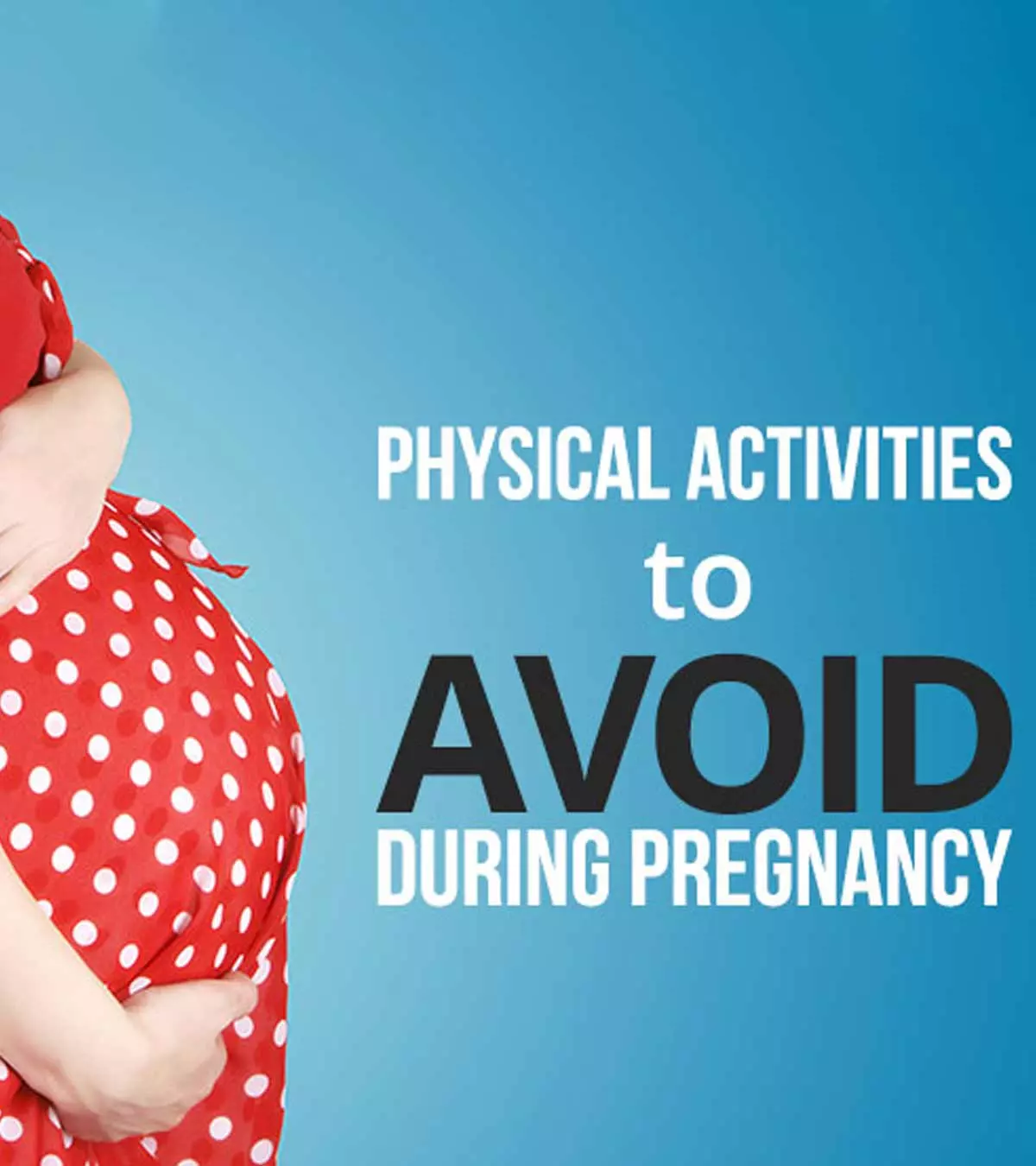

Image: iStock
False-negative pregnancy tests are common. If you missed your period this month, you might anticipate pregnancy. You decide to do a pregnancy test, but the result turns out to be negative. Even after two to three weeks of that, your periods have not started. So you visit your gynecologist, and she tells you that you are pregnant, indicating that your home pregnancy test result was false-negative.
At-home pregnancy tests might sometimes give false-negative results. Thus, relying on your home pregnancy test results is not always safe. Consult your doctor if you suspect anything. Read on to know why at-home pregnancy tests might give false-negative results and more information about it.
What Is A False Negative Pregnancy Test?
If you take a home pregnancy test and get a negative result even when you are pregnant, then it is called a false negative pregnancy test.
The kit detects your pregnancy by tracing the hormone human chorionic gonadotropin (hCG) in urine. The home test sometimes shows a false negative result if it is unable to read the levels of hCG.
How Common Are False Negative Pregnancy Tests?
A false negative result is more common than a false positive result. There is 10% likelihood of getting false negative result. Researchers have found that the results of home pregnancy test are more accurate (97.4%) when they are done by clinical technicians and less accurate when done by the consumers (1).
You can reduce the chances of getting a false negative result if you follow the instructions carefully. Also, do not take the test too early, i.e., even before you miss your period.
Let’s understand them in detail.
False Negative Pregnancy Test Causes
This section will explain the various reasons for false negative pregnancy test:
- Checking before the test reaction time: Reaction time is the time you need to wait for the kit to show the accurate result. Before you take the pregnancy test, read the instructions for the reaction time given on the kit box. It varies from three to ten minutes.
- Testing too early: One of the common mistakes that women do is to take the pregnancy test too early. In the early stage of pregnancy, the level of hCG hormone remains very low and could go undetected in the test. Even a blood test cannot give an accurate result in the early stage.
The hCG concentration after nine to ten days after ovulation is around 10mlU/ml. However, it increases at a rate of 50% per day as the pregnancy progresses, and reaches to around 100,000mlU/ml by the end of the tenth week. Then it reduces and remains stable at 20,000mlU/ml (2). So, you may miss the early positive result.
- Against the instructions: If you are not following the instructions on the kit, you are likely to get a wrong result. For example, if you are not saturating the strips with enough urine, or diluting it with impurities such as water, the result will not be accurate. Moreover, leaving the strip for longer hours after the test may alter the result.
- Sensitivity of the test kit: The kits are available with varying levels of sensitivity. Some kits are so sensitive that they can detect hCG levels of as low as 20mIU/ml. However, some can detect only if the level is 50mIU/ml or more. So, if your test kit is a low-sensitive one, you might not get an accurate result before your period due date.
- Diluted urine: Impurities in urine mislead the kit. Collect the first urine in the morning for the test. It is concentrated and will contain a high level of hCG, thereby reducing the chances of a false negative pregnancy test.
- Date of the kit pack: Check for the expiry date on the pregnancy kit before buying it. An expired kit will result in false negative results.
- Your medications: If you are on medication for allergies, or anticonvulsants such as epilepsy, tranquilisers or diuretics, they could lead to a false negative result (3).
- Ectopic pregnancy: In this case, even if the woman is pregnant, she may get a negative result as the fetus forms in the fallopian tube instead of the uterus. The condition is life-threatening to the mother and the pregnancy needs to be treated either medically or surgically (4).
So, if you had a negative result, how would you know if it is a false negative? Is there a way out?
What To Do When You Get False Negative Result
- Do the test again after a week. If your first test was negative, and your period didn’t start even after a week after the test, then take the test again. A gap of seven days will increase the hCG levels in your body; the test is likely to be positive if you are pregnant.
- If you are unable to ascertain the home test result, talk to your doctor. A blood test or ultrasound scan (in the later weeks) can give you a clear picture about your pregnancy.
- If the pregnancy result is negative, and your period hasn’t started, there could be several reasons for missed periods. Seek a doctor’s help to put your monthly cycle back on track.
Other likely reasons for missed periods
If you have missed your periods, then it doesn’t necessarily mean that you are pregnant. There may be numerous other reasons for the irregularity. Here are a few:
- Stress is one of the primary factors that could lead to missed/delayed periods. If there is work pressure in office or a problem at home, then it could lead to stress and anxiety. This, in turn, affects your health and can alter the monthly cycle of periods.
- If you have a history of period irregularity, then it alters your monthly cycle often.
- If you have suddenly gained or lost weight, then it brings in the hormonal imbalance, eventually impacting your periods (5).
- Hormonal imbalance due to ill-health, hectic schedules or change in your food patterns could delay your periods.
- Women who are nearing menopause are likely to face irregular periods.
- Excessive physical workout will bring about a change in the hormonal levels, which could result in the delay of your monthly cycle.
- Long distance traveling, change in the time zones and climate, disturbed sleep and meal times play a significant role in delaying your periods.
- Your lifestyle, including your eating habits, lack of or excessive physical movement, erratic work schedules all have an impact on the schedule of your periods.
- A health condition called prolactinoma, causes increased secretion of prolactin and decreases the production of estrogen hormone. Missed periods is one of the symptoms of prolactinoma.
- Polycystic ovary syndrome, commonly called as PCOS, is a medical condition associated with irregular ovulation and hormonal imbalances. This is another reason for delayed or missed periods.
A false negative pregnancy test at home might leave you heartbroken. But getting a final opinion from the doctor is necessary to confirm your pregnancy or lack of it accurately. There are several reasons that might lead to a false negative test. Therefore, do not get disappointed and try the test again a few days later. If you still notice that your periods are late, but the pregnancy test does not show positive results, consult a gynecologist. Take the requisite medical measures to deal with the condition.
References
- Lori A. Bastian et al.; (1998); Diagnostic Efficiency of Home Pregnancy Test Kits.
https://www.researchgate.net/publication/252563172_Diagnostic_Efficiency_of_Home_Pregnancy_Test_Kits - C. Gnoth and S. Johnson; (2014); Strips of Hope: Accuracy of Home Pregnancy Tests and New Developments.
https://www.ncbi.nlm.nih.gov/pmc/articles/PMC4119102/ - Doing a pregnancy test.
https://www.nhs.uk/pregnancy/trying-for-a-baby/doing-a-pregnancy-test/ - Cheng Li et al.; (2015); Risk factors for ectopic pregnancy: a multi-center case-control study.
https://bmcpregnancychildbirth.biomedcentral.com/articles/10.1186/s12884-015-0613-1 - Menstrual Cycle Disturbances.
https://www.epigee.org/health/lateperiod.html
Community Experiences
Join the conversation and become a part of our nurturing community! Share your stories, experiences, and insights to connect with fellow parents.
Read full bio of Dr. Asmita Kaundal
Read full bio of Shikha Thakur














